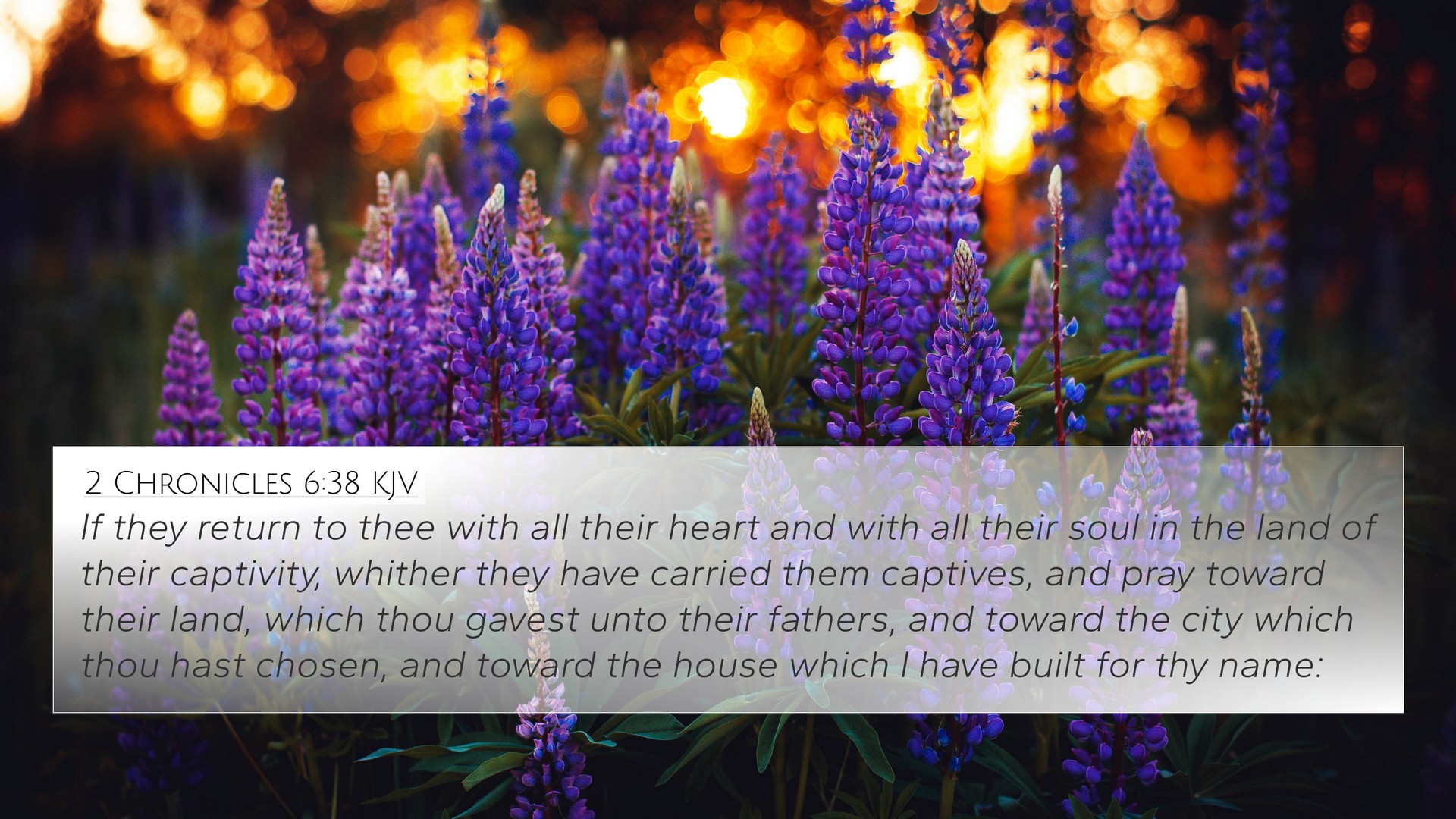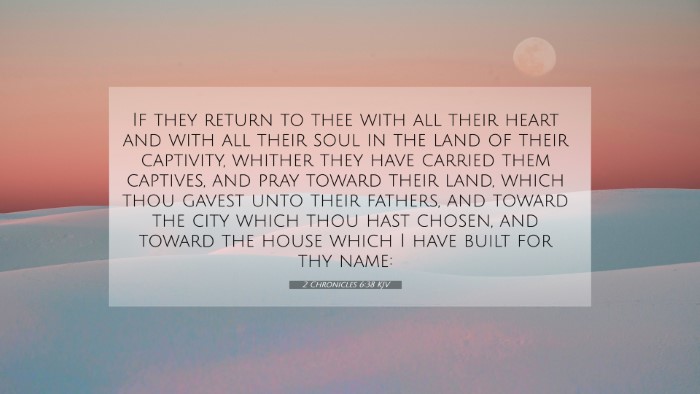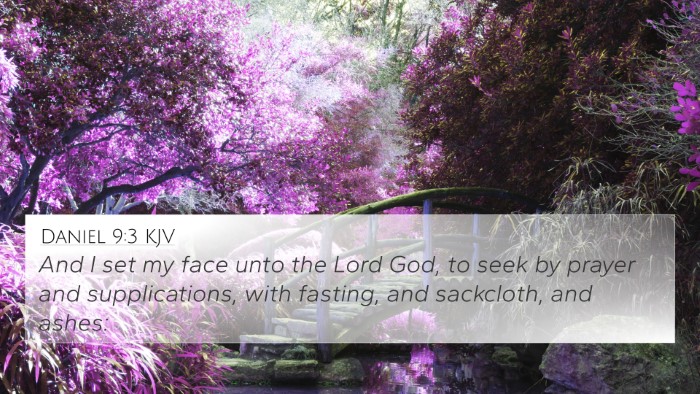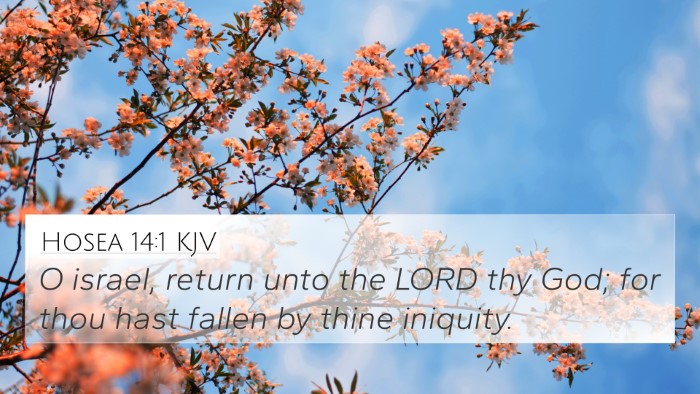Understanding 2 Chronicles 6:38
“If they return to you with all their heart and with all their soul in the land of their captivity, where they were taken captive, and pray toward their land, which you gave to their fathers, the city which you have chosen, and the temple which I have built for Your name.”
This verse highlights a deep theme of repentance and divine restoration. In the context of Solomon's prayer at the dedication of the temple, it indicates that God is always ready to show mercy to His people when they turn back to Him.
Commentary Insights
- Matthew Henry: Henry emphasizes the importance of the heart's condition in prayer. He notes that God's people, even in foreign lands, can seek Him and be restored if they return to Him wholeheartedly.
- Albert Barnes: Barnes points out the cultural and spiritual context of Jewish captives longing for their homeland. He asserts that this verse illustrates God’s fidelity to His promises, indicating His willingness to restore the Israelites upon their earnest return.
- Adam Clarke: Clarke discusses the significance of praying towards the land and temple, interpreting it as an acknowledgment of God’s presence and sovereignty. He suggests this instruction served to strengthen the faith of the captives, reminding them of their identity and covenant with God.
Thematic Connections
The themes present in 2 Chronicles 6:38 resonate with numerous other scriptures, portraying the cycle of sin, repentance, and redemption throughout the Bible.
Cross-References to Explore
- 1 Kings 8:47-50: The prayer of Solomon continues in Kings, affirming the call for repentance and God's promise to hear and restore.
- Jeremiah 29:12-14: God assures the exiles that when they seek Him with all their heart, they will find Him.
- 2 Chronicles 7:14: This verse echoes a national call to repentance, reinforcing the idea that humbling oneself before God brings healing.
- Psalms 51:17: A broken and contrite heart is what God desires, reflecting the importance of sincerity in repentance.
- Isaiah 44:22: God promises to blot out transgressions and provides assurance of returning to the Lord.
- Luke 15:18-20: The parable of the Prodigal Son illustrates the themes of returning, repentance, and acceptance by God.
- Acts 3:19: Calls for repentance lead to times of refreshing from the presence of the Lord.
- Hebrews 11:16: Speaks about a better country, emphasizing the hope of restoration and God’s eternal kingdom for His people.
- Revelation 3:19: Jesus calls for repentance with the promise of acceptance, consistent with the message of restoration in 2 Chronicles.
- James 4:8: Encourages believers to draw near to God, assuring them of His nearness in response to their seeking.
Practical Applications
This verse and its commentaries invite us to consider how we can apply these themes in our lives today:
- Heartfelt Repentance: The need for genuine contrition and return to God is paramount.
- Seeking God's Presence: Establishing a habit of prayer anchored in seeking God’s will and presence is vital.
- Understanding Our Heritage: Recognizing the importance of our spiritual roots can help strengthen our faith journey.
Conclusion
2 Chronicles 6:38 serves as a heartfelt reminder of God's readiness to restore those who sincerely seek Him. As we explore the intricate connections between these verses and others throughout Scripture, we deepen our understanding of God's faithfulness and our need for repentance. This verse encapsulates the broader narrative of the Bible, which is rich with themes of return, healing, and divine grace.
Encouragement for Study
For those engaging in bible cross-reference study, utilizing tools like a bible concordance can enhance your understanding of these themes. Exploring the connections between Bible verses can yield profound insights and a deeper appreciation of God’s overarching plan for His people.










